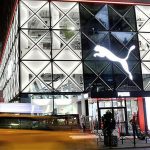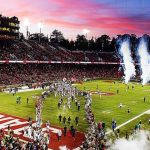The U.S. Supreme Court today dismissed on technical grounds a case in which Nike was seeking to reaffirm the First Amendment right to free and open debate. Nike had challenged in the High Court a California state court ruling that adopted a legal standard severely restricting the ability of businesses and other organizations to speak out on matters of public importance.
Although the U.S. Supreme Court issued no formal decision, a majority of the Court expressly rejected the central holding of the California Supreme Court that Nike’s speech could be restricted as purely “commercial.”
Justices Stevens, Ginsburg and Souter wrote that the case was not properly before the U.S. Supreme Court at this time. Justices Breyer, OConnor and Kennedy disagreed. The three remaining Justices did not offer any written opinion.
In arguing that the case must be heard at this stage, Justices Breyer and OConnor stated ” … the questions presented directly concern the freedom of Americans to speak about public matters in public debate, no jurisdictional rule prevents us from deciding these questions now, and delay itself may inhibit the exercise of Constitutionally protected rights of free speech.”
They also wrote that the Kasky case was inconsistent with the First Amendment because it “authorizes a purely ideological plaintiff, convinced that his opponent is not telling the truth, to bring into the courtroom the kind of political battle better waged in other forums.” Justice Breyer further predicted that Nike would eventually prevail on its First Amendment claims.
In writing for a dismissal, Justice Stevens, however, argued that issuing an opinion at this time would result in “the premature adjudication of novel constitutional questions” that would “apply with special force to this case.”
Justice Stevens opinion also added, “This case presents novel First Amendment questions because the speech at issue represents a blending of commercial speech, noncommercial speech and debate on an issue of public importance.”
The dismissal order means that the case returns to the California courts, which will have the views of the five Justices — Stevens, Souter, Ginsburg, Breyer and OConnor — in deciding whether the case may proceed to trial and, If so, with what legal safeguards. As the Justices noted, no court has evaluated the facts or concluded that Nike’s statements challenged in the case were false or misleading.
In response to today’s order declining to decide the case on its merits at this point, Nike issued the following statement.
“We are pleased that the only Justices who addressed the legal arguments recognized the importance of the First Amendment in this case and the significance of the issues that we raised.
“We are also pleased that so many parties sided with our legal position including the U.S. government, the ACLU, organized labor, dozens of media organizations and the U.S. Chamber of Commerce — all of whom recognized the importance of free speech to us, our consumers and other interested stakeholders.
“The fact is that the Supreme Court was clearly troubled by the decision of the California judges and the chilling effect that the decision will have on speech. But, the Court did not believe it had the authority to decide the case at this time.
“By deciding that the Court is precluded from hearing this case at this time, today’s procedural ruling returns the case to the California courts. A number of legal issues remain to be resolved that could have significant impact on the suit before the case could proceed to trial.
“Our fight to preserve the right to free and open debate moves forward.”
Corporate Responsibility Reporting and Accountability
Nike has been in a unique position both in this specific lawsuit and in relation to globalization issues in the past years. The case had a chilling effect on Nike’s ability to speak out on issues of public importance. It prohibited the company from talking to consumers, partners and critics about its response to critical globalization issues of labor, the environment and workers rights.
While the company will evaluate the impact of today’s decision on its ability to engage in public debate and to publish further reports on its corporate responsibility initiatives, it reaffirmed its corporate commitment to continuing to integrate corporate responsibility into the heart of its business.
“Since this lawsuit was originally filed in 1998 much has changed at Nike,” said Maria Eitel, Nike’s vice president and senior adviser, corporate responsibility. “We have learned an enormous amount and made significant changes in how we address the complexities of globalization.”
“We believe that all consumers and other stakeholders should be able to make their own assessment of a company’s performance based on robust, credible and relevant information. Equally important, we also believe that all stakeholders should have the benefit of common performance criteria through company reports to make such assessments,” Eitel added.
Nike believes there needs to be a level playing field, which can only be accomplished if there are standard and universally applied processes for accountability and reporting. Progress has been made in developing common reporting and assurance frameworks and systems (e.g. GRI and AA1000); but as of yet there is no common standard to which all companies can be held accountable.
Nike hopes to further the evolution of corporate reporting and assurance frameworks that lead to standard and universally applied processes, but this decision jeopardizes Nike’s ability to do.
“We are committed to playing a role, if possible, in helping evolve corporate reporting and assurance frameworks leading to standard processes,” said Eitel.
Background
Due to the impact that the lower court ruling could have on free speech, Nike had urged the U.S. Supreme Court to intervene early. However, during the oral argument the Justices noted several concerns with the California ruling and with the fact that the plaintiff does not contend that he or any other person was misled or harmed by any Nike statement.
Some Justices also wondered aloud whether the lower court ruling was in fact in the correct procedural posture to permit review by the nation’s highest Court. A majority of the Court apparently accepted that view in today’s order.
Today’s order stemmed from a 4-3 ruling in which the California’s Supreme Court said that a company’s public statements about its operations could persuade consumers to buy its products. Consequently, the state court held that those statements must be treated as run-of-the-mill commercial speech, thereby warranting severely limited constitutional protection.
The state court indicated that such speech could be restricted even when those statements appear in news stories, op-eds, press releases or on websites published anywhere in the world, just as long as the statements reach residents of California.
The California court also held that it did not matter whether the speaker made an inadvertent mistake or whether no one, like the plaintiff in this case, had claimed any injury.
In challenging the California ruling, Nike received strong support for its legal position from a wide variety of parties including, the U.S. government, the American Civil Liberties Union, organized labor, a host of media organizations and European entities, trade associations and the U.S. Chamber of Commerce. Those parties expressed their views in a series of amicus (“friend of the court”) briefs filed after the U.S. Supreme Court decided to hear the case.
Citing the importance of the First Amendment, the ACLU said, “(W)e strongly believe that the dispute over Nike’s overseas labor practices should be resolved through public debate and not in a courtroom … Nike’s interest in telling its side of the story in a nationwide debate,” continued the ACLU, “is no less entitled to full First Amendment protection than statements made by those who have leveled charges critical of Nike’s employment practices.”
Additionally, the AFL-CIO, which did not expressly support either side, urged that the California decision be overturned. It wrote that its own criticism of Nike’s labor practices and Nike’s responses are a public exchange that “should be an open free speech debate under the First Amendment and not one subject to legal regulation under the commercial speech doctrine.”
A group of 40 media entities including the New York Times Company, CNN, the Washington Post Company and CBS argued that business representatives will be deterred from speaking to the press about a vast array of public issues, unless the California decision were overturned. They wrote “(t)his chilling effect will deprive the public of access to important news stories and the clash of competing view points that undergirds the First Amendment.”
During the argument, Professor Tribe argued that Nike’s statements “dont come close” to “commercial speech,” which the Supreme Court has defined as such “speech that proposes a commercial transaction.”














